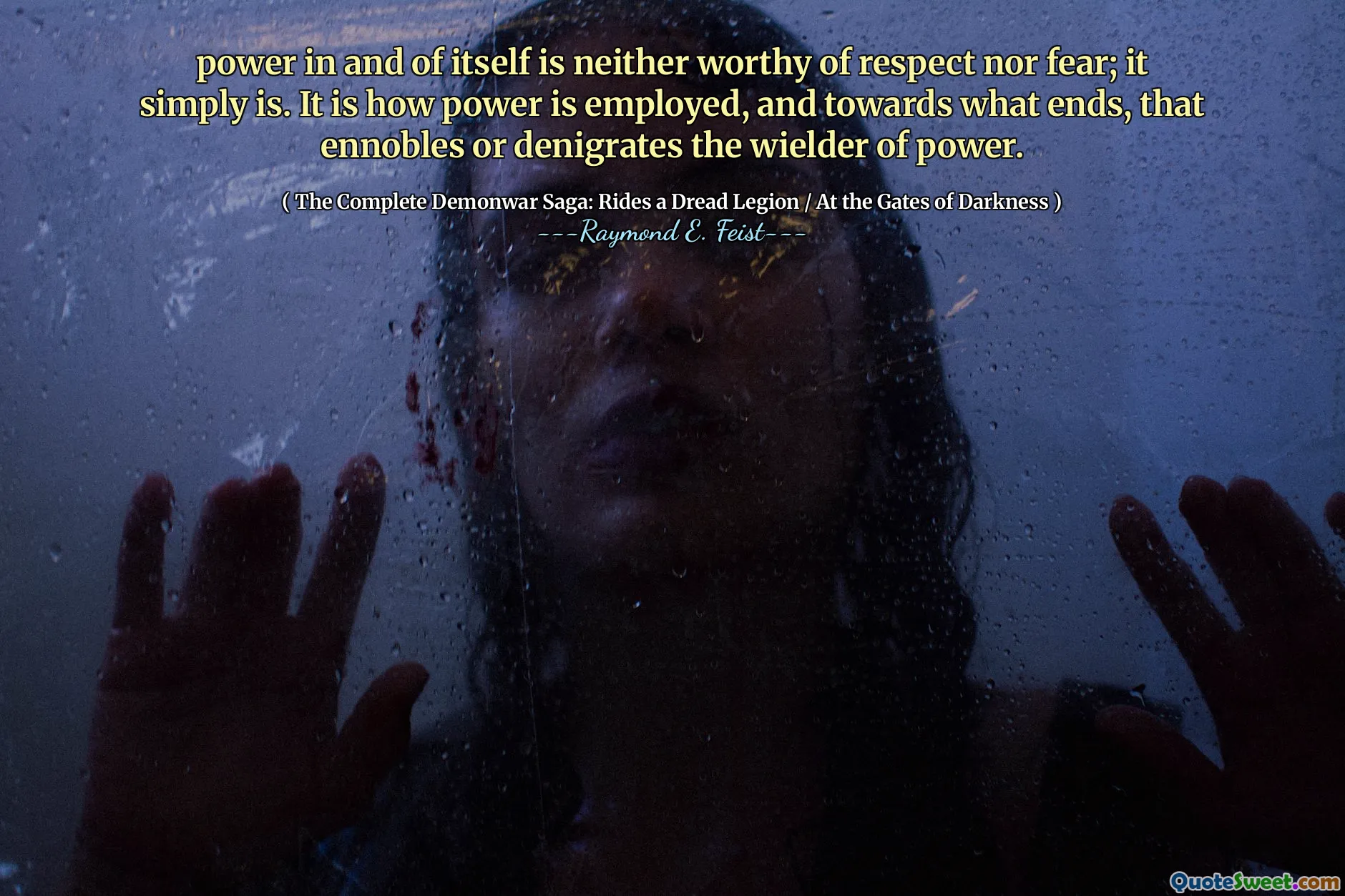
power in and of itself is neither worthy of respect nor fear; it simply is. It is how power is employed, and towards what ends, that ennobles or denigrates the wielder of power.
The quote offers a profound perspective on the nature of power, emphasizing that power by itself is neutral. Its moral value is not inherent but depends entirely on the intentions and actions of those who wield it. In many contexts, people tend to either revere or fear power, assuming it to be inherently formidable or dangerous. However, this quote challenges that notion by asserting that the true measure of power lies in its utilization. The manner in which power is exercised reveals the character and morality of its wielder, either elevating them through noble actions or tarnishing their reputation through selfish or malicious deeds.
This perspective is incredibly relevant in today's political, social, and personal spheres. Leaders with immense power can be virtuous if guided by principles, compassion, and a desire for the greater good. Conversely, with corrupt motives, the same power becomes a tool for exploitation and harm. The quote encourages us to reflect on our own use of influence, authority, or resources—asking whether our actions serve to uplift others or diminish their worth.
Additionally, it underscores the importance of ethical considerations in leadership and personal conduct. Power, when wielded responsibly, can be a force for positive change, justice, and progress. Misused, it can lead to oppression, inequality, and suffering. Ultimately, this insight advocates for accountability and integrity, recognizing that the moral weight of our actions defines the true worth of our power, rather than the raw force itself.






